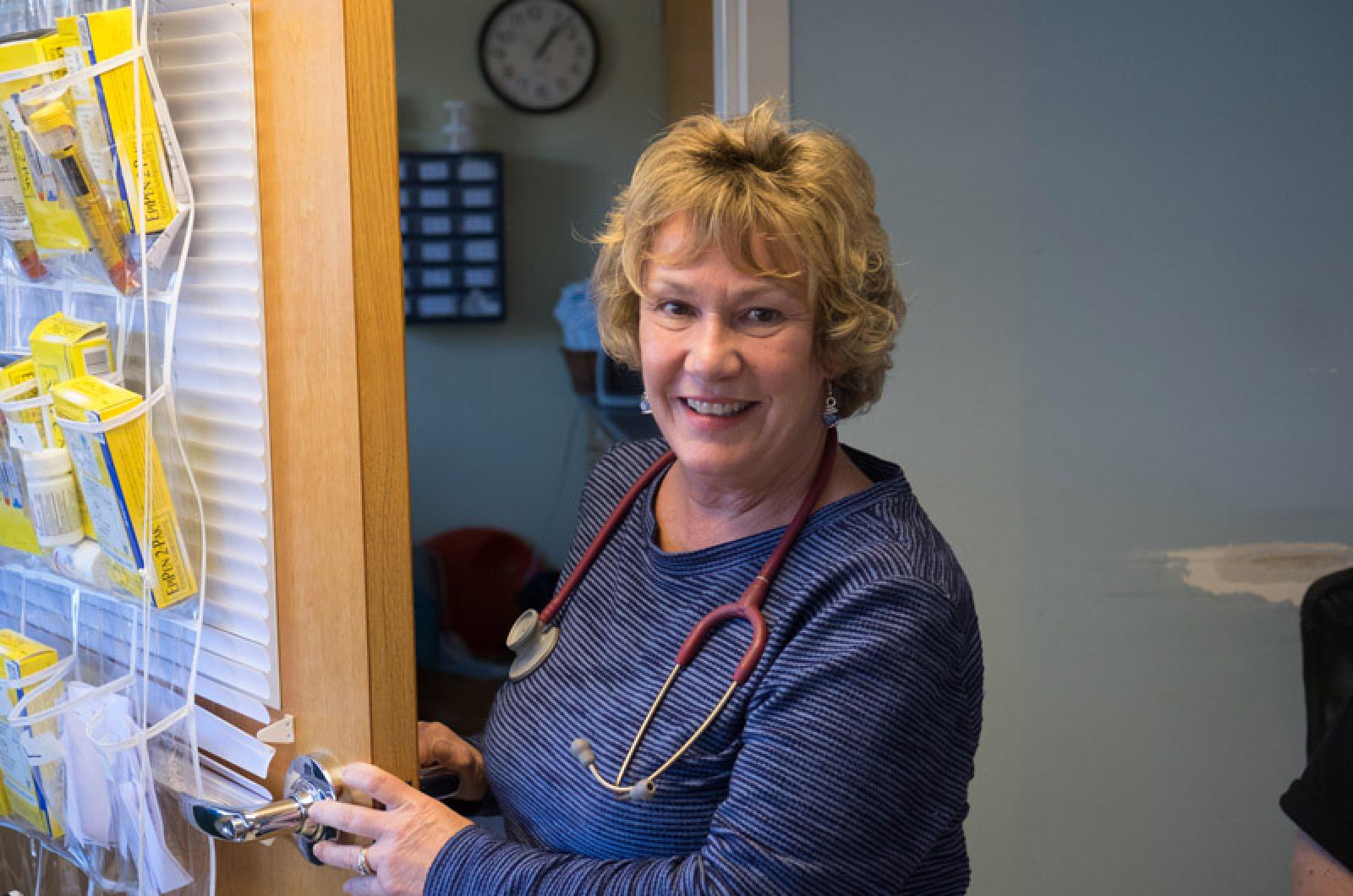Martha’s Vineyard Regional High School nurse Linda Leonard started her job at the high school nine years ago. That same year she received a call about applying for an Enhanced School Health Services Grant that would fund travel off-Island to connect with other school nurses to share ideas and get up to date on the newest regulations. Not only did she get the $3,000 grant, she has received it every year since.
“I was a new school nurse,” she said in a recent interview. “It really, really connected me with lots of schools.”
Ms. Leonard partners with Monomoy Regional Schools for the grant and uses resources from Northeastern University’s School Health Institute. She has been a nurse on Island and in Boston for 35 years and knows how essential it is to keep current in her field.
“Nurses have to be educated every day to new treatments, new protocols, new mandates,” she said. “Can you imagine never going back to school after you graduate? The education of nurses is a public issue.”
Ms. Leonard returns to the Island with the new knowledge and disseminates it to the other school nurses. A lot of the education she receives and passes on is preemptive. In October, she was updated on the latest medical technology for children with special needs such as respirators. Though none of the students she works with currently have respirators, it’s always better to be informed she said.
“You might not be working with that today, but tomorrow is a different story,” she said.
Her recent trip also included the subject of stocking nasal naloxone, also known as Narcan, at the schools. Naloxone is a medication that counteracts an opioid overdose.
The Massachusetts Department of Public Health school health unit now recommends that school districts have a written protocol that authorizes the school nurse to administer nasal naloxone in the school setting. Ms. Leonard is trained in administering nasal Narcan and went through a refresher course this year. School nurses are at the front lines of young people’s health for the majority of the day during the school year. Currently at least 77 schools in Massachusetts stock Narcan.
Trips in the past have led to the computerization of all of the records around the Island so the nurses can more easily collate their data and analyze it for trends. And when students transfer from the elementary schools, their health records can be moved over easily.
The flow of information goes both ways as Ms. Leonard has also brought what she has learned on the Island to her colleagues off-Island. Vineyard schools were on the forefront of the concussion discussion in 2010.
“We had a concussion program before it was mandated,” she said. “I work closely with Tania and recognized concussions were impacting our students.” Tania Laslovich is the athletic trainer and shares office space with Ms. Leonard.
“Kids were getting accommodations for hurt wrists but not for hurt brains,” said Ms. Laslovich.
Without the grant funding her travel, Ms. Leonard suspects she would be on the phone a lot more, trying to keep abreast of her fast-paced field. Even as it is, she said she is constantly communicating with the other school nurses on the Island, and they have all worked together to synch their office operations.
“This grant was big on bringing continuity to the Island in the school nurses offices,” Ms. Leonard said.




Comments (1)
Comments
Comment policy »